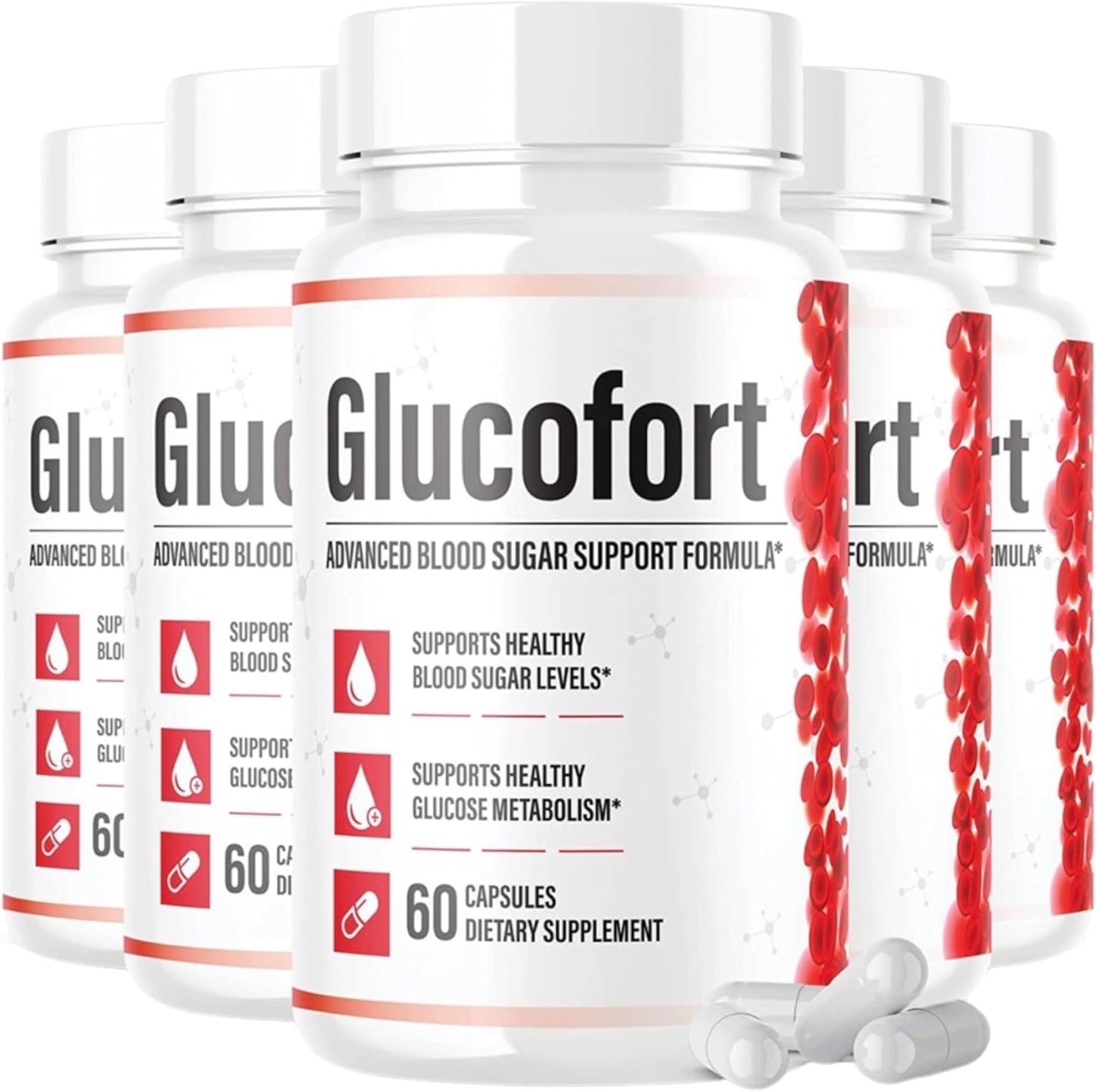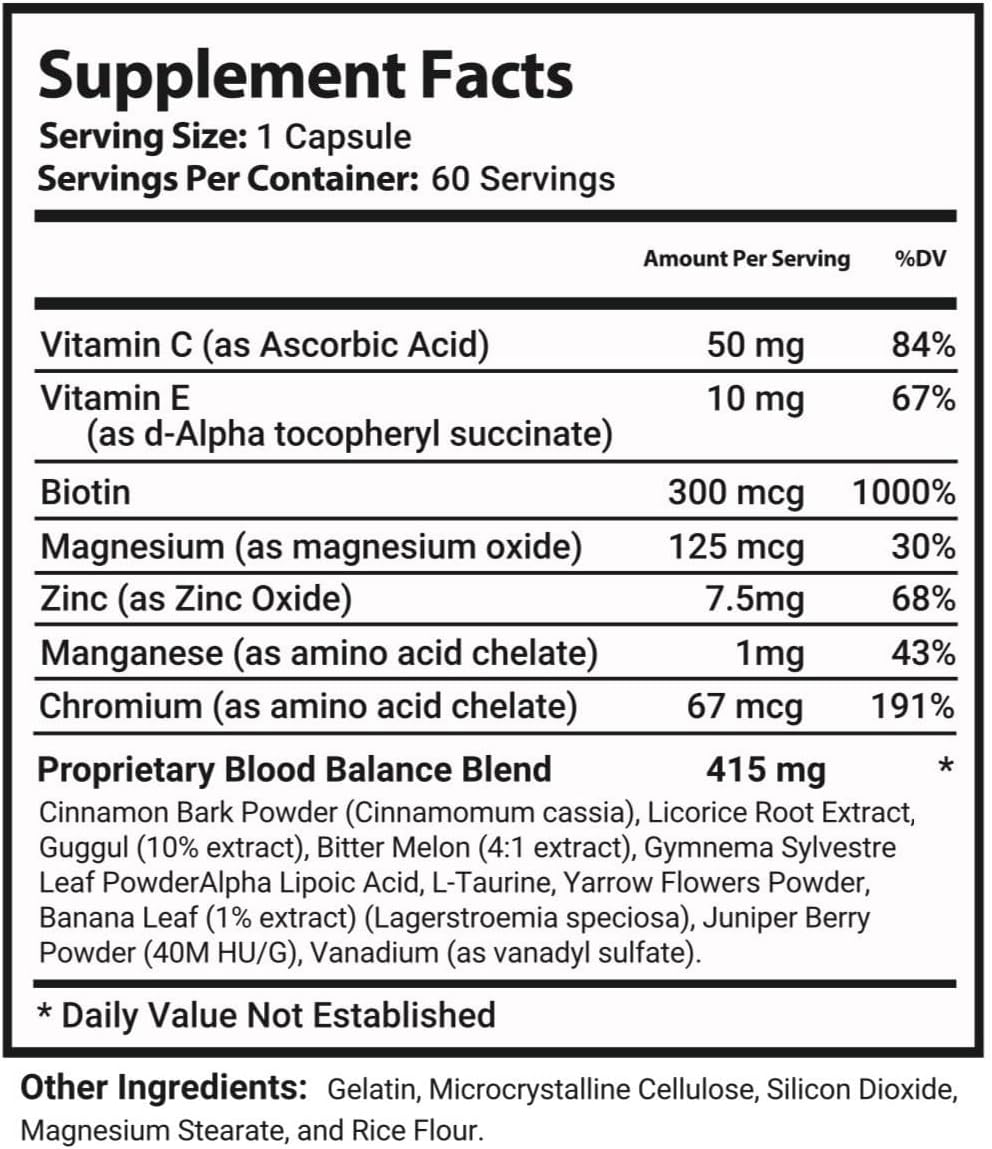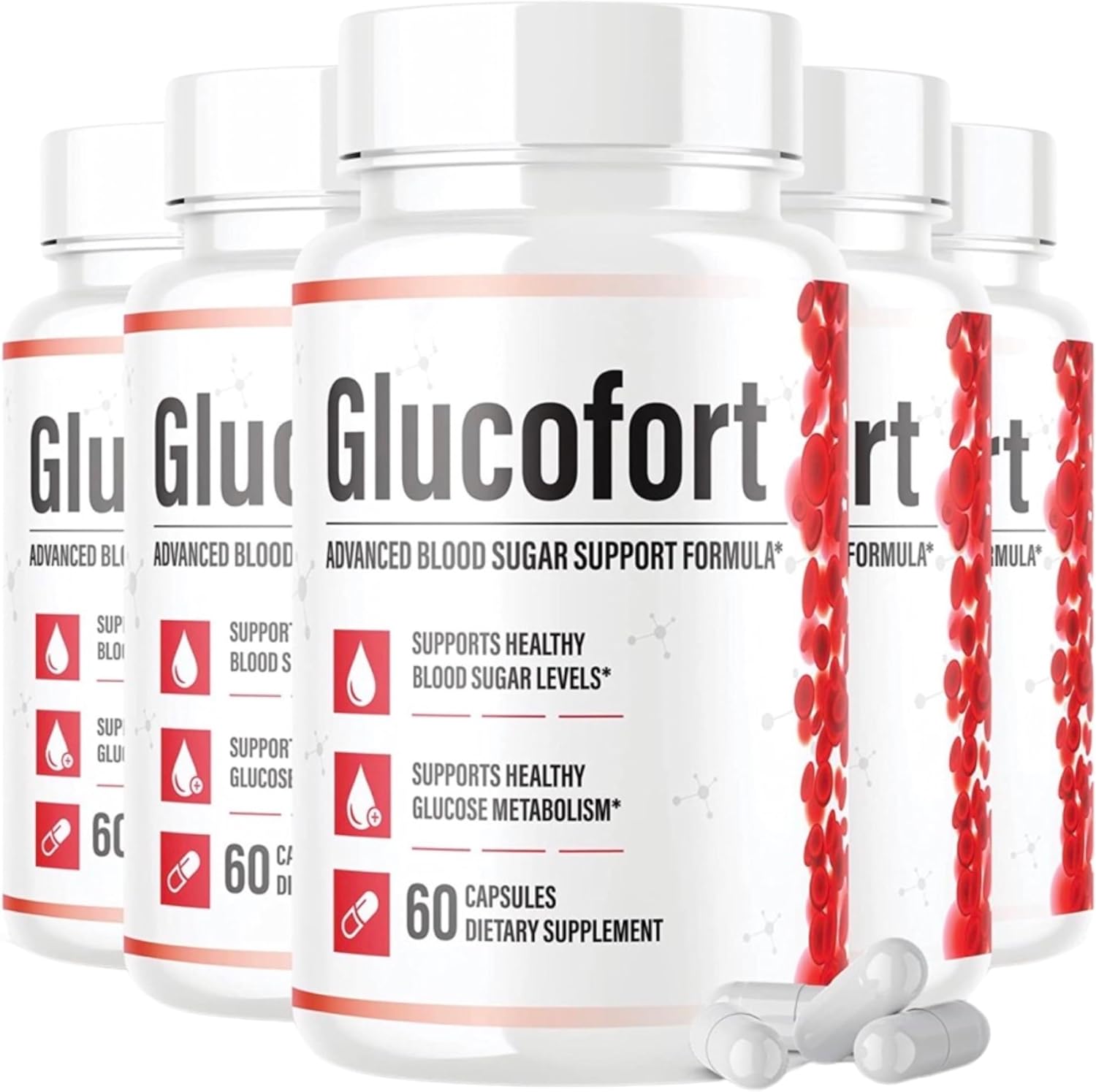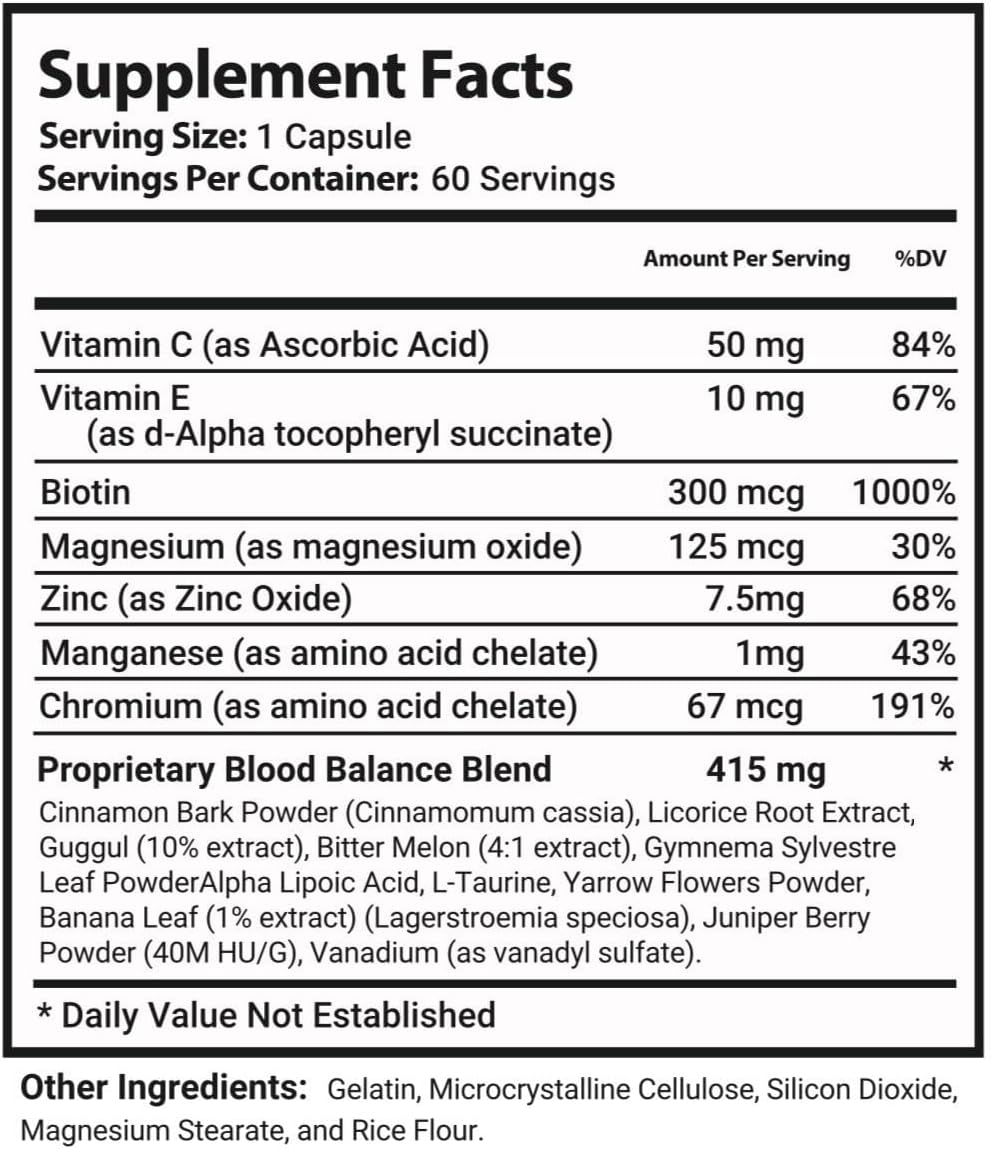

Glucofort is something of a tricky product to review, the science around over the counter and natural blood sugar support supplements is relatively new and whilst ingredients like Vanadium do look promising, and the science does show an impact on insulin resistance and it does seem to be anti diabetic, the catch is there's about 100 different theories as to why this is the case with a lot of the studies only being from early 2020 and progress on understanding what is perhaps the key ingredient in Glucofort is a bit limited.
And since GlucoFort came out, several supplements have come out with better ingredients and better doses of the functional ones in GlucoFort, so we wouldn't recommend it as a go to option any more.
It's been shown to work to reduce blood sugar issues in humans, with tests done on both diabetics and pre diabetics, but further trials being needed before it could have none over the counter applications. It's really quite promising though.
We did only have one person in the office that we could get to test Glucofort themselves as a pre diabetic of several years and checking their blood sugar readings whilst on the supplement did seem to show some improvement, but a sample size of one is hardly scientific.
All in all glucofort is an interesting supplement, and it seems like it's not bad all in all. There's just a lot better options now. Generally we'd recommend SugaSafe for most people as it has everything in Glucofort and more.
What Glucofort Claims To Do
Glucoforts claims are relatively mild, it only promises to help support healthy blood sugar levels, which doesn't really say much, this is realistically due to compliance laws meaning that they can't outright say that it's designed to support diabetes without having to go through a lot of rigorous and expensive testing. It does also claim to help you stay healthy in other ways, including anti oxidants etc, but realistically the only people buying this supplement are people looking to lower blood sugar levels. Then there's the study they funded specifically on participants with some form of diabetes, meaning we all know what the supplement is actually supposed to be for, even if Glucofort can't say it directly without jumping through FDA hoops.
Glucofort Specific Study
Glucofort themselves did run a study, and when most of these sorts of studies are done by the supplements industry we roll our eyes, however for once this one actually did seem to be pretty well done, with a respectable 160 participants and notably positive outcomes with no negative side effects recorded, which is pretty reasonable. The study was conducted by a third party, but as always we do have to take these things with a pinch of salt. That said, with there being recommend and pre studied use doses of the functional ingredients in Glucofort the study does go some way to undoing the skeptism of the proprietary blend meaning that we can't be 100% certain that the ingredients are ideally dosed.
Customers Glucofort Reviews
And once again Glucofort continues to be awkward to review, it seems that there are a lot of customer reviews of Glucofort on Amazon where people have received a fake product, unfortunately due to the fact that Amazon let's anyone sell there it may only be resellers of the product listing there, thus it's average score has been lowered by a lot of these reviews. Even still it averages 3.8*, which isn't terrible, but even a quick read shows most of the complains are likely getting a Glucofort scam alternative not the real product. We'd recommend buying direct from their website to be safe. Realistically the product rating looked more like 4.4* when we accounted for the percentage of Glucofort customer reviews that were 1* for receiving a fake product on Amazon. This does actually mean that the reviews are really quite positive. And there were a lot of people claiming that it had indeed, successfully lowered their blood sugar.
Glucofort Ingredients
Glucofort Vitamin Blend
Vitamin E - Vitamin E has been shown to improve glycaemic control in people with pre diabetes and diabetes, it is recommended as a supplement medically and by many diabetes charities, thus is a good start to a blood sugar supplement. Glucofort contains more than enough here, so that's off to a good start.
Vitamin C - Vitamin C has also been shown to be beneficial for diabetes, however, the studies show it needs to be at 500mg not 50 as is in Glucofort, so whilst the ingredient is good, the dose is too low to be effective.
Zinc - Again Zinc has been shown to be preventative, and long term supplementation seems to reduce the risk factors of diabetes helping the Glucofort supplement potentially stop pre diabetes becoming diabetes and improving the overall condition for those already there. It's not quite 100% of the RDI, but should be plenty to make sure you're intaking enough.
Manganese - Manganese has been shown to be beneficial for preventing hyperglycaemia and fluctuating blood sugar levels, again another solid inclusion for Glucofort.
Magnesium - Low magnesium levels have been shown to increase the risk of developing diabetes and supplementing for it in people with deficiency has shown improved glucose metabolism, as such again it's a good addition to the supplement, however, Glucofort does only contain 25% of the RDI, so whilst this is a nice plus, it's not going to make a massive difference. All in all this makes for an OK vitamin blend, if we'd have liked to have seen a little more vitamin C and magnesium.
Glucofort Blood Sugar Supplement Proprietary Blend
Vanadium - Vanadium seems to be a great ingredient to increase glucose metabolism and to be honest it's really the star of the Glucofort show, [1] but the exact reasons as to how aren't fully understood, with most of the work to understand what's happening still coming from rat studies. With it seeming to raise the ability for glucose to pass through cell walls [2] but also inhibits tyrosine phosphatase [3] which stops an enzyme which breaks down glucose from working properly. Then there's the fact that it stimulates glucogenesis, the break down of sugars directly [4], and several other theories on why vanadium works the way it does. It definitely looks like a good ingredient for a blood sugar supplement like Glucofort, but the science here is quite complex and not fully understood.
Banaba Leaf - has also been shown to lower high blood sugar levels in human trials with an average of a 13.5% decrease across subjects. [5] Again the exact mechanism isn't currently understood, no adverse effects in lowering blood sugar levels were reported. Other studies showed 16.6% improvement. We can't be sure of the volumes in Glucofort, but a relatively low 100mg was used for testing. Which there is definitely room for in Glucofort.
Guggul - There's mixed results for this one when it comes to lowering glucose levels, some initial studies were interesting, but recent studies have shown it could be ineffective. [6]
Bitter Melon - Bitter melon could work, but the dosage isn't likely to be high enough for it to be particularly effective, the studies that showed it as comparable to other insulin resistance interventions in a clinical setting had it dosed at 2000mg. [7]
Licorice Root - licorice root does contain some substances with an insulin resistance beating effect. The dosage is relatively low, so seems like a good inclusion for a combined supplement designed to help lower glucose levels.
Cinnamon Bark - Several studies have shown cinnamon bark can be effective in improved glucose metabolism and cholesterol levels in people with type 2 diabetes [8] another solid inclusion and several diabetes charities recommend supplementing.
Yarrow Flowers - These have been shown to improve insulin sensitivity and have several other general health benefits. Another decent choice for Glucofort. [9]
Juniper Berry - This is where the ingredients quality tails off a little bit, with Juniper Berry's mostly being backed by rat studies rather than human trials for an insulin production supplement.
White mulberry - This last ingredient is also a particularly good inclusion, with it having been show to be notably effective as a dietary supplement for reducing blood glucose levels. [10] There have been multiple double blind placebo controlled studies which support it's use in maintaining healthy blood sugar levels conducted in reputable universities. Mulberry tea has also been shown to suppress blood sugar spikes after eating [11] showing that it can theoretically work to reduce blood glucose of your next meal straight away from supplementing.
Although this trial was a relatively small sample size of around 100 individuals. All in all the ingredients list here is really good for a supplement aimed at reducing blood glucose levels with only a couple of relatively minor missteps.
References
1 - https://www.ncbi.nlm.nih.gov/pmc/articles/PMC7152879
2 - https://pubmed.ncbi.nlm.nih.gov/12083368/
3 - https://pubmed.ncbi.nlm.nih.gov/15928604/
4 - https://pubmed.ncbi.nlm.nih.gov/28132446/
5 - https://www.ncbi.nlm.nih.gov/pmc/articles/PMC3468018/
6 - https://www.ncbi.nlm.nih.gov/pmc/articles/PMC5960856/
7 - https://pubmed.ncbi.nlm.nih.gov/21211558/
8 - https://www.diabetes.co.uk/natural-therapies/cinnamon.html
9 - https://pubmed.ncbi.nlm.nih.gov/31888081/
10 - https://www.ncbi.nlm.nih.gov/pmc/articles/PMC5321430/
- Choosing a selection results in a full page refresh.
- Opens in a new window.

